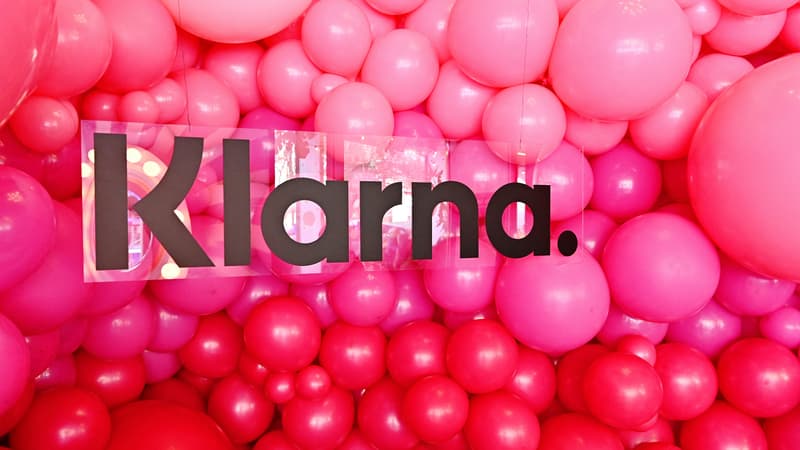Klarna, the world specialist in installment payments, has just introduced a fun option in its mobile application. An “opt-out” credit option: by activating it, you can renounce, out of prudence, being able to benefit from the installment payment solutions offered by… Klarna. Never seen! This is part of the anti-addiction filters that British neobanks have introduced, but it goes much further: in a context of purchasing power tensions, Klarna invites its customers to be aware of the excessive ease of resorting to credit that it offers. the same. This is just a simple option but once chosen it can only be canceled through Klarna customer service.
To fully understand this rather unexpected innovation, you have to rewind the movie for a moment. When installment payment went mainstream a few years ago, spurred on by new players like Klarna, banks were initially very circumspect. This “Buy Now Pay Later” (BNPL) was never just credit; a kind of accelerated, simplified and not risk-free consumer credit. Did they have to go there? A certain number of establishments then chose to entrust it to one of their subsidiaries, such as BPCE with Oney or BNP Paribas with Floa. After all, businesses and consumers welcomed this new payment facility and banks believed that it could be a loss leader for more traditional consumer credit offers (personal loan, revolving credit associated with a card). .
In any case, the new players in installment payments hardly scared the banks. With rising interest rates, a refinancing problem would inevitably arise. We ourselves had already reported it in May 2022 in these columns: Klarna was going to have a very hard time! In fact, last year, its valuation plummeted from 46 to…6.7 billion dollars! And Klarna ended the year with a billion-dollar loss.
However, their accounts today are recovering. Klarna could show profit by the end of the year. Klarna diversified very quickly. Very quickly, in fact, the Swedish fintech understood something that many consumer credit players still haven’t fully grasped: BNPL is a credit, but it’s not perceived as such by those who use it. On the contrary, if it has been so successful, it is because it avoids the use of consumer credit or the onerous facilities of credit cards. Generally free to the consumer, it is so easy that the youngest do not understand that it is not a general method of payment.
An e-commerce platform
Based on this observation, Klarna has successfully launched a shopping browser, powered by artificial intelligence and very open to values linked to the ecological transition. A true e-commerce platform that combines payment methods and lifestyles and that continues to expand (agreement with Airbnb, resale possibilities for individuals, etc.). It is from this perspective that Klarna can present today, with an undeniable announcement effect, the previously announced option. As if credit was no longer his core business.
But all of this just illustrates a much more general phenomenon: the increasing power of the usage bank, which adheres to consumption patterns, which immediately supports consumers. We have already highlighted how this is completely disrupting savings and encouraging the emergence of such innovative players as the French fintech PennyPet. But there are others: like Elyn, who is launching “Try Now Pay Later” in France, while (outside France) a forward purchase formula is emerging, very useful in times of inflation, which is practically the opposite of the BNPL , the “Save now pay later”.
In France, one player had particularly felt this orientation, even before its acquisition by BNP Paribas: Floa Bank (ex-Banque Casino). Instant loans (with Lydia), mini “boost” loans, then installment payments: it was about being present, not only at points of sale such as consumer credit, but directly, through brands, with consumers, to respond immediately and not focus on opening accounts. Floa understood this before many and today it could be a spearhead for these payment facilities, which are increasingly independent from traditional consumer credit and whose scope is constantly expanding: payroll advances to avoid overdrafts, pots and grouped payments, facilitation of resales and circular economy. , person-to-person payments (with the incredible success of Venmo/Paypal, which has become a common means of payment in the United States). .. The real field, however, is not that of payment solutions as such, but the support of moments and lifestyles, especially in a difficult economic context.
“Hybrid” establishments
Thus, “hybrid” establishments appear that are formally banks but that no longer function exactly like the latter. Generalize and standardize new operating methods (open banking to understand risks, essential mobile interface instead of relationship based account management, personalized but automated assistance, insistence on data security, etc.). So it is to be expected that traditional banks will soon be tempted, like BNP Paribas with Floa, to move these hybrids away from their current activities.
There is, however, a problem! If we follow the latest edition of the Bain & Company survey carried out among 29,805 consumers in 11 countries, about their expectations and uses of financial services, we see that the fragmentation of the banking market is now widespread and seems irreversible. This means that the majority of the public now tends to use multiple providers for their payment, credit, and savings needs. However, Bain observes, it is the new methods of supporting the use of payments that essentially encourage people to switch banks and attract more of the public. Therefore, it will be difficult for banks to permanently count them as separate entities.
Source: BFM TV


